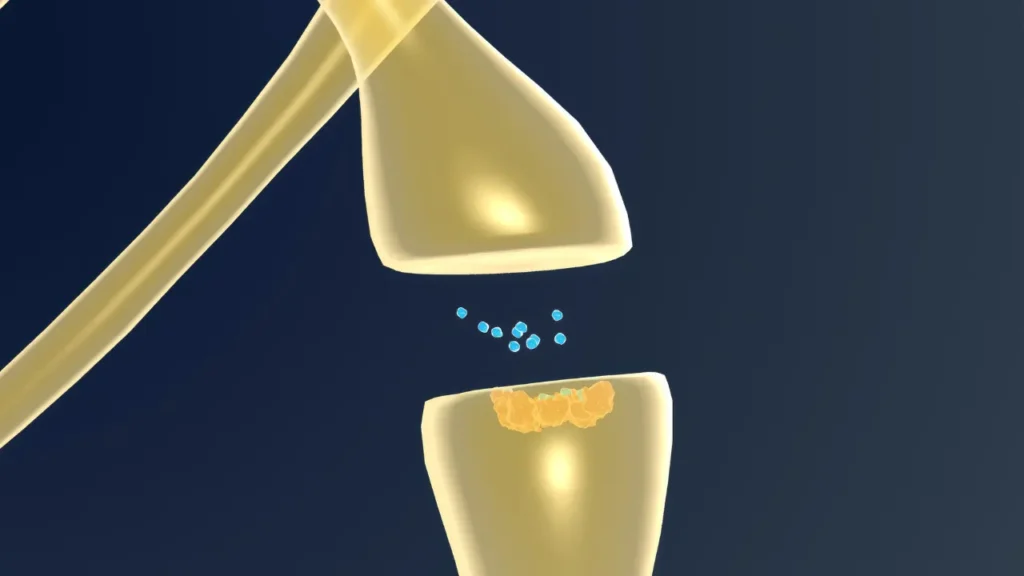Dragon’s blood, or Sangre de Grado, is a traditional herbal remedy made from the sap of several Croton species, most notably the South American native Croton lechleri. Native American tribes have been using this natural resin for generations because of its alleged medicinal benefits. The nootropic community has taken notice of Sangre de Grado in recent years due to its possible advantages in improving cognition. This article explores Sangre de Grado’s scientific properties, including its chemical makeup, health advantages, recommended dosage, adverse effects, possible drug interactions, and recommendations for moderate usage as a supplement.
You May Also Like:
The Best Supplements for Memory and Brain Fog: 5 Top Brands Reviewed
ONNIT Supplements Antarctic Krill Oil Reviewed: A Leading Memory Support Supplement
Sangre de Grado: Benefits, Dosage, Side Effects, Drug Interactions, and Other Important Information is an original (NootropicsPlanet) article.
Nature of Sangre de Grado
Sangre de Grado, commonly known as Dragon’s Blood, is a natural resin derived from the Croton lechleri tree which grows in the Amazon rainforest and areas of South America. The resin is customarily extracted by cutting incisions in the tree’s bark in which the dark red sap runs. For ages, indigenous cultures have used this sap for its therapeutic benefits, primarily for wound healing, antiseptics, and the treatment of various gastrointestinal disorders. It is also referred to as the “blood of the dragon” due to the stunning crimson hue of the resin which resembles blood.
Health Benefits of Sangre de Grado
Sangre de Grado’s potential benefits for brain health and cognitive function are of particular interest due to its rich composition of bioactive compounds. These benefits are attributed to its anti-inflammatory, antioxidant, and neuroprotective properties.
Neuroprotection and Antioxidant Activity: The resin includes potent antioxidants including proanthocyanidins, which help neutralize free radicals in the brain. Free radicals can cause oxidative stress in cells, which has been linked to the development of neurological illnesses such as Alzheimer’s and Parkinson’s. Sangre de Grado can help protect neurons by lowering oxidative stress thereby preserving cognitive function and potentially slowing the progression of neurodegenerative illnesses.
Anti-inflammatory Effects: Chronic inflammation is a defining feature of many neurodegenerative disorders and is frequently linked to cognitive loss. Sangre de Grado has anti-inflammatory components, such as lignans and phenolic compounds, which can help reduce brain inflammation. This not only promotes brain health but may also alleviate symptoms of inflammation-induced cognitive impairment.
Enhancement of Cognitive Functions: Although study is still ongoing, Sangre de Grado is thought to help with cognitive processes like memory, focus, and attentiveness. This could be owing to its possible impact on neurotransmitter systems, which promote synaptic health and plasticity. Healthy synapses provide effective communication between neurons, which is essential for learning, memory, and overall cognitive performance.
Neurogenesis Support: Preliminary research suggests that Sangre de Grado may aid in neurogenesis, the process of producing new neurons in the brain. This is essential for cognitive resilience and flexibility since it allows the brain to heal from damage and adjust to new learning and memory requirements.
Protection Against Cognitive Decline: Sangre de Grado’s antioxidant, anti-inflammatory, and neuroprotective effects may help guard against cognitive decline, particularly in the setting of aging and neurodegenerative illnesses. Its ability to reduce risk factors linked with cognitive impairment makes it a promising candidate for future research in neurology and psychopharmacology.

Chemistry of Sangre de Grado
Sangre de Grado, or Dragon’s Blood, is a dark red resin obtained from various species within the Croton genus, notably Croton lechleri. As mentioned, the rich crimson color of the resin is reminiscent of blood, which accounts for its name. Chemically, Sangre de Grado is composed of a complex mixture of compounds that contribute to its diverse therapeutic properties. Key components include:
- Taspine: A primary alkaloid that has been extensively studied for its wound-healing properties. Taspine acts as a cicatrizant, aiding in the healing of cuts and wounds by stimulating the migration of fibroblasts, cells critical for wound healing, and promoting angiogenesis (the formation of new blood vessels).
- Proanthocyanidins: These are oligomeric flavonoids known for their potent antioxidant activity. They scavenge free radicals, reducing oxidative stress within the body, which is particularly beneficial for maintaining cognitive function and neuronal health.
- Lignans: A group of naturally occurring compounds that exhibit anti-inflammatory, antiviral, and antitumor activities. Their mechanism of action involves modulating immune responses and inhibiting the replication of various pathogens.
- Phenolic compounds: Sangre de Grado contains several phenolic compounds, which contribute to its antioxidant and anti-inflammatory effects. These compounds help protect cells from oxidative damage and reduce inflammation, which is crucial for preventing cognitive decline and supporting overall brain health.
The therapeutic benefits of Sangre de Grado are attributed to the synergistic effects of these compounds. Their combined action provides a multifaceted approach to supporting health, particularly in terms of wound healing, infection control, and inflammation reduction.
Physiological Mechanism of Action of Sangre de Grado
The physiological effects of Sangre de Grado on the body and brain can be attributed to its complex chemical makeup. While not all mechanisms are fully understood, research has highlighted several key pathways through which Sangre de Grado exerts its effects:
- Wound Healing: Taspine, a major alkaloid in Sangre de Grado, promotes wound healing by stimulating fibroblast proliferation and angiogenesis. This accelerates the repair process, leading to quicker recovery from cuts and abrasions.
- Anti-inflammatory Action: The lignans and phenolic compounds in Sangre de Grado can inhibit the production of pro-inflammatory cytokines, reducing inflammation. This is particularly relevant for neuroinflammation, as chronic inflammation within the brain is associated with various cognitive impairments and neurodegenerative diseases.
- Antioxidant Protection: Proanthocyanidins and other antioxidant compounds in Sangre de Grado neutralize free radicals, preventing oxidative damage to cells. This antioxidant activity is crucial for protecting neuronal cells from oxidative stress, which can lead to cognitive decline and neurodegenerative disorders.
- Neurotransmitter Modulation: Preliminary research suggests that Sangre de Grado may influence neurotransmitter systems, potentially enhancing cognitive functions such as memory, focus, and alertness. However, the specific interactions with neurotransmitter pathways remain an area of ongoing research.
- Immune System Support: The antiviral and antibacterial properties of Sangre de Grado stem from its ability to enhance immune system responses to pathogens. By modulating immune activity, Sangre de Grado can help the body better resist and fight off infections.

Optimal Dosage of Sangre de Grado
The ideal dosage of Sangre de Grado for cognitive improvement is difficult to determine due to variations in the concentration of active components from different processing techniques and a lack of extensive clinical research. Dosages utilized in traditional methods vary greatly, and current research has yet to develop uniform dose parameters. Users should start with low doses, as recommended by the product manufacturer, and gradually increase to determine tolerance and effect. You should check with healthcare specialists before introducing Sangre de Grado into their regimen, especially if you are looking to improve their cognitive function.
Side Effects of Sangre de Grado
Sangre de Grado is usually deemed safe when used in typical applications. However, its safety profile at greater doses or for long-term nootropic use is unclear. Some people may develop gastrointestinal issues, such as diarrhea or abdominal cramps, which are most likely caused by taspine and other alkaloids. Even though it is rare to have allergic responses towards Sangre de Grado, there are still cases of sensitive individuals who might react negatively to the use of this supplement. If any adverse effects occur, you should stop the use immediately and seek medical care.
Potential Substance Interactions with Sangre de Grado
Sangre de Grado, like many natural supplements, may interact with other substances, such as drugs, other supplements, or certain meals. Its action on liver enzymes may change the metabolism of many medications, either increasing or decreasing their efficacy. Individuals taking anticoagulants, antiplatelet drugs, or any medications with a narrow therapeutic index should exercise extreme caution due to the danger of altered drug metabolism or interactions that could result in negative consequences.

Best Responsible Use of Sangre de Grado
If you are interested in taking Sangre de Grado as a supplement, you should approach it as follows: begin with a low dose, attentively monitor for any side effects, and avoid prolonged use without medical supervision. Sangre de Grado should only be obtained from trustworthy sources to assure product purity and healthcare specialists should be consulted before starting any new supplement, especially if you have prior health concerns or are taking other medications.
Sangre de Grado:
Conclusion
In conclusion, Sangre de Grado is known as dragon’s blood because the tree produces a dark crimson natural resin that is rich in bioactive compounds. Sangre de Grado supplements are believed to possess anti-inflammatory, antimicrobial, cognitive improving properties, etc. Sangre de Grado contains key components like taspine, proanthocyanidins, lignans, and phenolic compounds which have therapeutic benefits for overall brain health.
Additionally, Sangre de Grado has been used for digestive health, skin conditions, and immune support. However, scientific research on the efficacy and safety of Sangre de Grado supplements is limited. Therefore, it’s important to use Sangre de Grado supplements cautiously and to consult with a healthcare professional before incorporating them into your health regimen.

References:
- Chemical Constituents from Croton Species and Their Biological Activities. Retrieved from:https://pubmed.ncbi.nlm.nih.gov/30213129/
- Exploring Four South African Croton Species for Potential Anti-Inflammatory Properties: In Vitro Activity and Toxicity Risk Assessment. Retrieved from:https://pubmed.ncbi.nlm.nih.gov/34492319/
- Leaf Anatomy of Two Medicinal Croton Species: Contribution to Plant Recognition. Retrieved from:https://pubmed.ncbi.nlm.nih.gov/33580993/
Important Note: The information contained in this article is for general informational purposes only, and should not be construed as health or medical advice, nor is it intended to diagnose, prevent, treat, or cure any disease or health condition. Before embarking on any diet, fitness regimen, or program of nutritional supplementation, it is advisable to consult your healthcare professional in order to determine its safety and probable efficacy in terms of your individual state of health.
Regarding Nutritional Supplements Or Other Non-Prescription Health Products: If any nutritional supplements or other non-prescription health products are mentioned in the foregoing article, any claims or statements made about them have not been evaluated by the U.S. Food and Drug Administration, and such nutritional supplements or other health products are not intended to diagnose, treat, cure, or prevent any disease.


